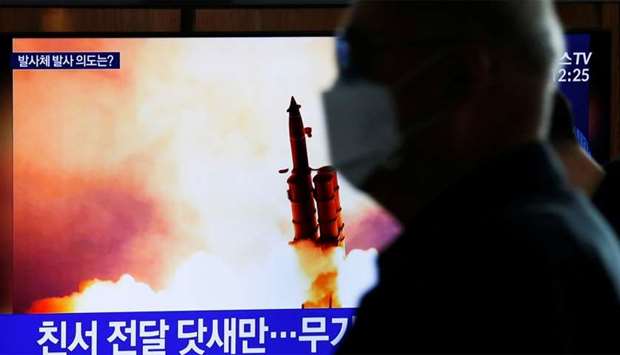North Korea fired three projectiles into the East Sea on Monday, South Korea's Yonhap news agency reported, citing the Joint Chiefs of Staff (JCS) of Seoul's military.
They were fired from a location near the town of Sondok in the east of North Korea at around 7:36 am (2236 GMT Sunday), Yonhap said.
They flew around 200 kilometers, reaching an altitude of about 50 kilometres, Yonhap said citing the JCS, adding that Seoul was monitoring the situation in case of further launches.
South Korea's national security advisor Chung Eui Yong held an emergency video meeting with ministers and the chief of intelligence to analyse the possible intentions of the neighbouring country, according to the president's office.
‘Today's launches appear to be part of its artillery strike drill involving multiple types of multiple rocket launchers for a wintertime exercise, following the previous ones staged on Feb. 28 and March 2,’ the JCS said in a release cited by Yonhap.
Japan's Defence Ministry confirmed that Pyongyang fired more than one projectile and that the objects are believed to be ballistic missiles, adding that they fell outside Japan's exclusive economic zone.
The launches come just a week after Pyongyang fired two missiles, described by Japan as ballistic missiles, into the East Sea, also known as the Sea of Japan.
It marked a return to missile testing for North Korea after a three-month pause.
The rogue nuclear nation is banned from testing ballistic missiles by United Nations resolutions, and has been slapped with tough international sanctions to deter it from continuing to develop rockets that could be equipped with nuclear warheads.
Global concerns over North Korea intensified late in 2019 after Pyongyang imposed a year-end deadline for the United States to offer sanctions relief and threatened to send a ‘Christmas gift,’ widely interpreted to mean a weapons test, if their demands were not met.
North Korea's leader Kim Jong Un said the world would see a ‘new strategic weapon’ from the country in the near future, in a message on January 1.

